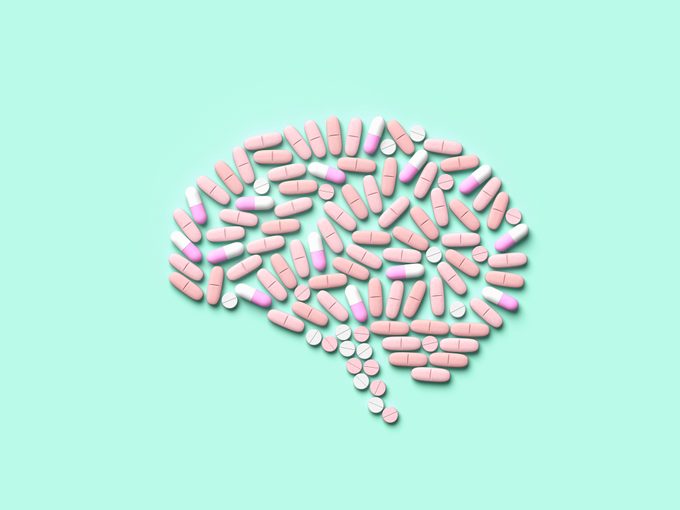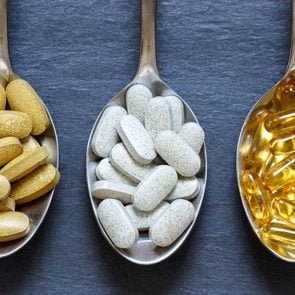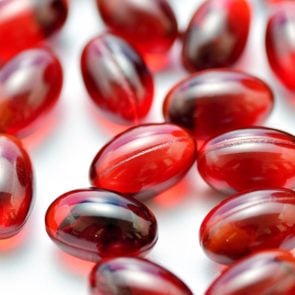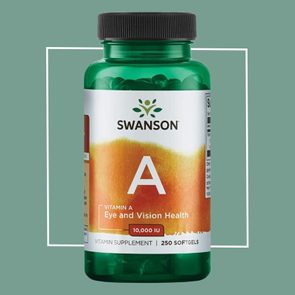What Doctors Really Think of Brain-Boosting Dietary Supplements
Updated: May 12, 2021
Can taking dietary supplements boost your memory and brain function? Doctors weigh in.

If you didn’t know better, you might think better brain health is just a supplement away. More than 25 percent of adults in the United States, ages 50 and older, take supplements for mental sharpness and brain health, according to the 2019 AARP Brain Health and Dietary Supplements Survey. But do dietary supplements really work?
“Because of the way dietary supplements are regulated, suggestive claims are often without proof,” says David Seres, MD, Director of Medical Nutrition and associate professor of medicine in the Institute of Human Nutrition at Columbia University Irving Medical Center in New York City.
The U.S. Food and Drug Administration (FDA) regulates dietary supplements and, unlike drugs, they don’t require FDA approval. It’s up to the supplement manufacturers to determine that their products are safe and their label claims are truthful and not misleading.
“People take ‘brain-boosting supplements’ in hopes of reducing the decline in cognitive function as they age,” says Paul M. Coates, PhD, vice president of the American Society for Nutrition and former director of the National Institutes of Health (NIH) Office of Dietary Supplements. “But the evidence is weak to non-existent that any of them work.” Here’s what you need to know about eight popular supplements that are believed to have brain benefits.
L-theanine
Ask a green tea lover why they love their drink and they’ll likely talk about its de-stressing, concentration-boosting health benefits. They may be on to something. Research, including a study published in 2019 in Nutrients, suggests that L-theanine—an amino acid found naturally in green tea leaves—has the potential to improve mental health in people with stress-related ailments and cognitive impairments. After four weeks of taking an L-theanine supplement, participants’ stress-related symptoms (depression, anxiety, and sleep deprivation) decreased and their cognitive function improved.
But the findings come with a caveat: “Given that tea contains both L-theanine and caffeine, and that it is safely consumed worldwide and might benefit mood and cognitive function, drinking tea could be a logical choice for people hoping to reap some benefits,” says Carol Haggans, a registered dietitian and scientific and health communications consultant with the NIH Office of Dietary Supplements. However, “L-theanine supplements with or without caffeine haven’t been studied long-term. Although no safety concerns have been identified, their safety hasn’t been rigorously studied.” (Other foods aren’t so unclear. Check out the 9 worst foods for your brain.)
Acetyl-L-carnitine
This amino acid—which is produced by the body—is taken for everything from Alzheimer’s and depression to high blood glucose and Peyronie’s disease. So why take a supplement for something the body supplies naturally?
“This is a classic example of, ‘If some is good, more must be better,’ ” says Seres. “There is a slew of cellular research that suggests that this amino acid might have a role in regulating pathways that have an impact on these diseases. The problem is, biology is complicated. In every situation, if you alter—by supplementation—one mechanism of a biological process, there is almost always a dozen or more redundant pathways that will counter that alteration. These can never be fully anticipated. Nor can the potential for harm.”
The bottom line? Research on carnitine and these conditions, to the extent it exists, is preliminary at best, and to the best of our knowledge, no professional society or other expert group recommends taking supplemental carnitine for cognitive function, says Paul R. Thomas, a doctor of education, registered dietitian, and scientific consultant with the NIH Office of Dietary Supplements. “At doses of approximately 3000 mg per day, carnitine supplements can cause nausea, vomiting, abdominal cramps, diarrhea, and a fishy body odor.” (If you’re looking to stay sharp for work, try these 7 morning brain boosters.)
Phosphatidylserine
Phosphatidylserine is a fatty substance known as a phospholipid, and it plays an important role in the brain, contributing to your memory and mental processing. Which helps explain the “claims that this compound may help protect against Alzheimer’s disease, improve memory, slow mental decline with age, and treat ADHD,” says Thomas. “A few preliminary studies suggested that phosphatidylserine might be of use for these conditions, but any benefits were short-lived and small in relation to other pharmacological and behavioral therapies for these conditions.”
Bottom line? “Phosphatidylserine appears to be generally safe when taken as a dietary supplement, but doses over 300 milligrams a day may cause side effects like stomach upset and insomnia,” says Thomas. Plus, it “can interact with drugs like atropine and various medications used to treat glaucoma, Alzheimer’s disease, depression, and allergies. Speak to a medical professional before taking phosphatidylserine, especially if you take any medications.”
Phenylethylamine
More commonly known as PEA, this amphetamine-like compound turns up in small amounts in chocolate, peas, and beans, and it behaves like a neurotransmitter in the body. “Any effects of PEAs may come in part by stimulating the production and reducing the breakdown of neurotransmitters such as serotonin, dopamine, and norepinephrine,” says Thomas. “PEA is very rarely found in dietary supplements. Amphetamine-like compounds can have cardiac and neuropsychiatric side effects, including fast heartbeat, raised blood pressure, heart attack, stroke, and seizures.” (Learn these 50 surprising facts about the brain.)
 Omega-3 fatty acids
Omega-3 fatty acids
There’s a small mountain of scientific research exploring the potential health benefits of omega-3s, with those found in foods—like salmon and sardines—and fish oil supplements getting most of the attention as opposed to the omega-3s found in plant-based foods. That’s because “omega-3 fatty acids, chiefly the long-chain polyunsaturated ones like DHA and EPA, are important in a variety of metabolic reactions that are involved in inflammation,” says Coates.
What’s clear is that “eating a diet rich in omega-3s is associated with better health outcomes than eating a diet poor in these compounds,” he says. “Whether adding more omega-3s over and above those in the diet makes an additional difference is really the debate.”
As for brain health, research suggests that diets high in DHA and EPA omega-3s are associated with a reduced risk of cognitive decline, Alzheimer’s disease, and dementia, according to the NIH Office of Dietary Supplements. One study, published in 2003 in The British Journal of Nutrition, showed that patients with Alzheimer’s disease have lower levels of omega-3s (specifically, DHA) than cognitively healthy people. A review of studies published in 2015 in the American Journal of Clinical Nutrition found that consuming omega-3-rich fish and other sources of DHA lowered the risk for dementia and Alzheimer’s.
Honey supplements
Why is honey so popular among the health-minded crowd? “It’s a powerful energy source for our brain,” says Keerthy Sunderxn, MD, psychiatrist and chief medical officer of New Day Psychotherapy Group and SUNDERMD & Associates. A review of studies, published in 2015 in Medical Sciences, showed that a specific type of honey called tualang improves memory and reduces cell-damaging oxidative stress in the brain. It also increases the protein BDNF (brain-derived neurotrophic factor), which is like fertilizer for the brain, triggering the growth of new neurons and helping repair and protect brain cells from degeneration. (Try making a habit of these 38 genius activities your 80-year-old brain will thank you for.)
Chewable coffee
A single chewable coffee cube can pack 50 milligrams of caffeine—the same as a cup of coffee. It also contains 500 percent of your recommended daily allowance of vitamins B6 and B12, 6 grams of sugar, and 100 milligrams of the amino acid L-theanine, which enhances caffeine’s effects, according to a study published in 2014 in Nutrition Reviews.
The pairing of “L-theanine combined with caffeine might improve alertness and attention somewhat,” says Haggans. “However, it’s not clear whether the combination is better than either of the compounds alone.” And getting caffeine in such a concentrated form may not be the best idea; you may set yourself up for a potential caffeine overdose. Here’s how much coffee you can safely drink.
Next up, make sure at least some of these 25 brain-boosting foods are among your diet staples.


















